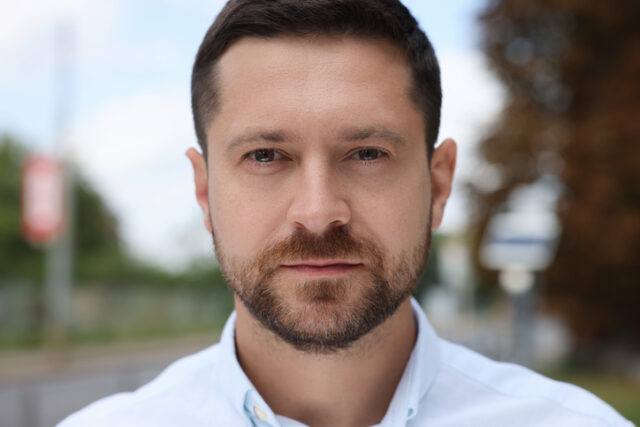Given the absolute insanity that is modern life, finding any sliver of peace sometimes feels like a pipe dream.

It’s so hard to harness any bit of calm and relaxation, but it shouldn’t be. I’ve found that embracing certain habits has definitely made my life a little easier in this department, and they may help you, too. Here are some ways to get a bit more peace.
1. Embrace the power of ‘no’.

We often overcommit out of guilt or FOMO, but learning to say ‘no’ is liberating. It’s not selfish to respect your time and energy. Next time you’re asked to do something, pause before automatically agreeing. Ask yourself if it aligns with your priorities or if it’ll make you happy. If not, politely decline. You’ll find that people respect your boundaries, and you’ll have more time for what truly matters.
2. Cultivate a ‘good enough’ mindset.

Perfectionism is a peace-killer. Striving for excellence is admirable, but obsessing over flawless outcomes leads to stress and disappointment. Adopt a ‘good enough’ approach. Whether it’s a work project or a home-cooked meal, aim for satisfactory rather than perfect. You’ll find tasks become less daunting, and you’ll actually complete more. Plus, you’ll be kinder to yourself in the process.
3. Create a daily ‘quiet time’ ritual.

Carve out a small pocket of tranquillity in your day, even if it’s just 10 minutes. This isn’t about meditation (unless that’s your thing). It could be sipping tea while gazing out the window, taking a short walk without your phone, or simply sitting in silence. The key is to make it a non-negotiable part of your routine. This daily pause can help reset your mind and provide a calm anchor in busy days.
4. Declutter your digital life.

Our phones and computers are often sources of stress and distraction. Take control of your digital space. Unsubscribe from newsletters you never read, mute WhatsApp groups that overwhelm you, and organise your desktop. Consider a ‘digital sunset’ — a time each evening when you switch off notifications. You’ll be amazed at how much mental clutter this clears, leaving room for more peaceful thoughts.
5. Practice the art of single-tasking.

Multitasking is often glorified, but it’s a myth. Our brains aren’t wired for it, and attempting to juggle multiple tasks simultaneously leads to stress and poor performance. Instead, embrace single-tasking. Focus on one thing at a time, give it your full attention, and then move on. You’ll find you’re more productive, less stressed, and more present in each moment.
6. Opt for curiosity over judgement.

When faced with difficult people or situations, our initial reaction is often to judge. But judgement creates inner turmoil. Try replacing judgement with curiosity. Instead of immediately labelling someone as ‘rude’, wonder why they might be acting that way. This shift doesn’t mean you have to agree with or like everything, but it can lead to more understanding and less internal conflict.
7. Embrace the ‘one in, one out’ rule.

Clutter, both physical and mental, can be a major source of stress. Adopt the ‘one in, one out’ principle. For every new item you bring into your life — be it a piece of clothing, a book, or even a commitment — remove one. This helps maintain balance and prevents overwhelm. It also encourages more mindful consumption and decision-making, leading to a more peaceful environment and mindset.
8. Make friends with uncertainty.

Much of our stress comes from trying to control the uncontrollable. Practice accepting uncertainty. When you catch yourself worrying about future outcomes, remind yourself that you can’t predict everything. Focus instead on what you can control: your actions, reactions, and attitude. This shift can be incredibly liberating, freeing up mental energy for more constructive thoughts.
9. Create a ‘worry time’.

It might sound counterintuitive, but scheduling a specific time to worry can actually reduce overall anxiety. Set aside 15 minutes each day as your designated ‘worry time’. When anxious thoughts pop up outside this time, jot them down to address later. This technique helps contain worry rather than letting it spill over into your entire day, leading to more peace in your daily life.
10. Practise random acts of kindness.

Kindness isn’t just good for others; it’s a powerful tool for personal peace. Make a habit of performing small, unexpected acts of kindness. It could be as simple as sending an appreciative text to a friend or helping a stranger with their groceries. These acts create positive connections and give you a sense of purpose and fulfilment, contributing to a more peaceful state of mind.




